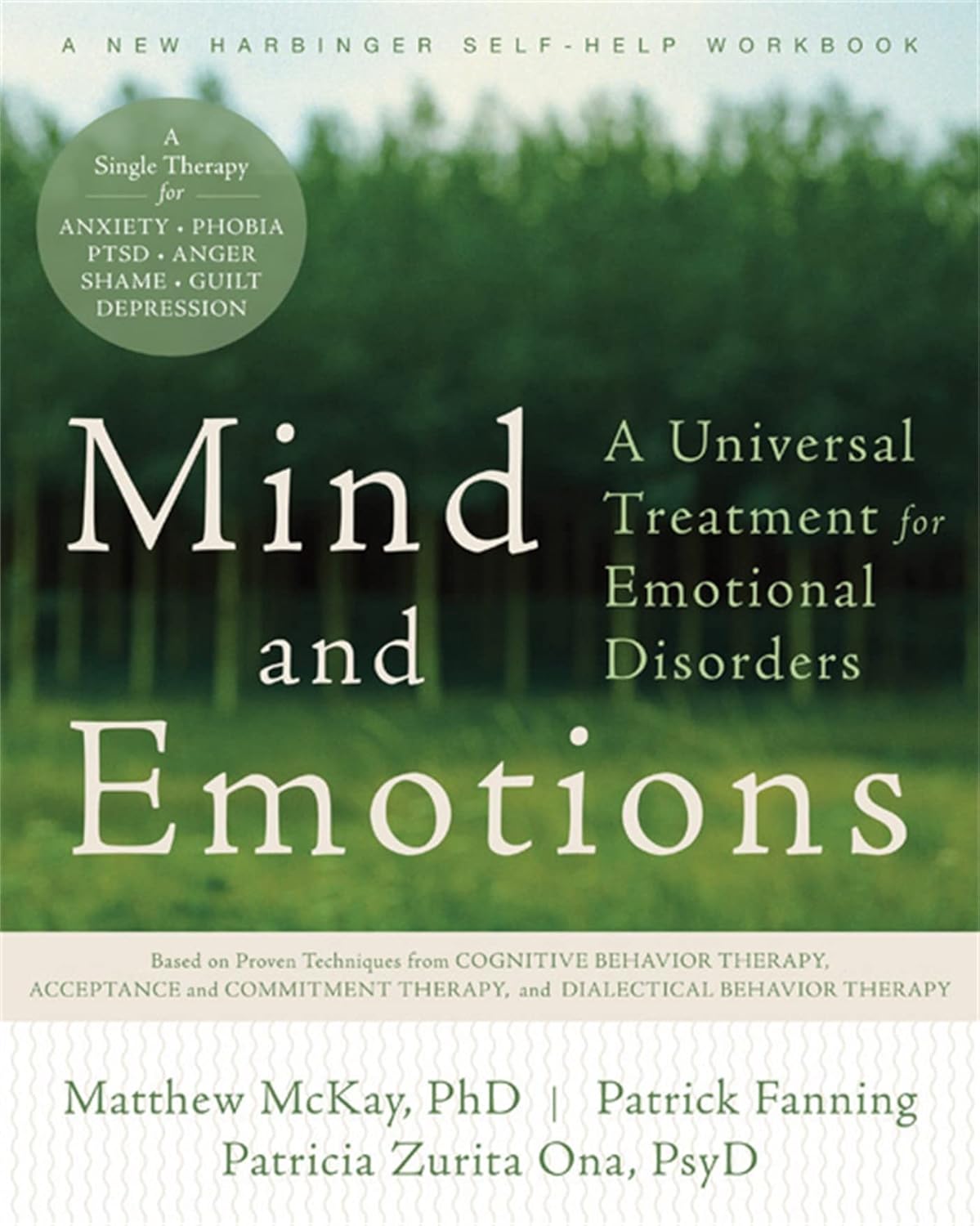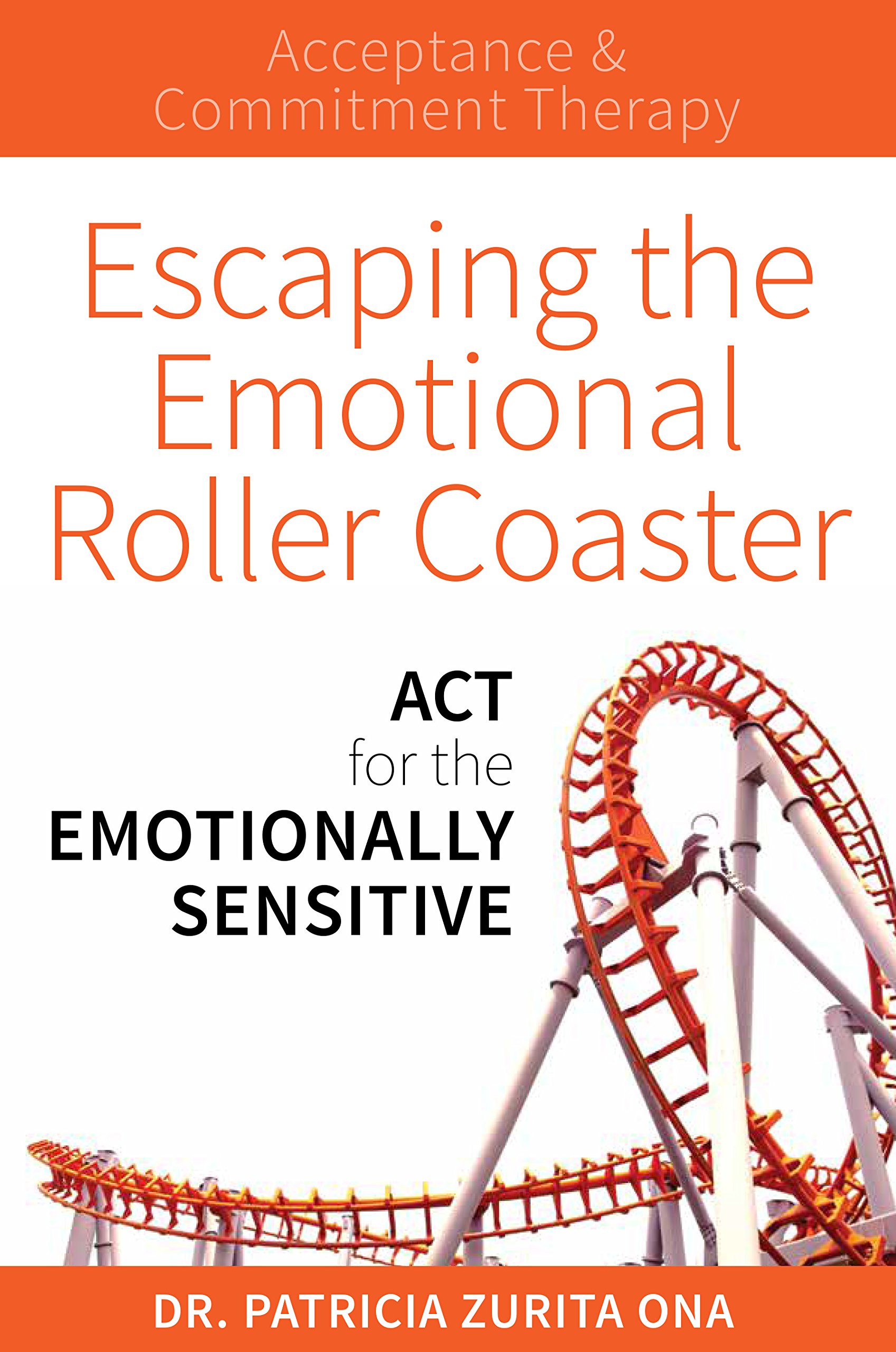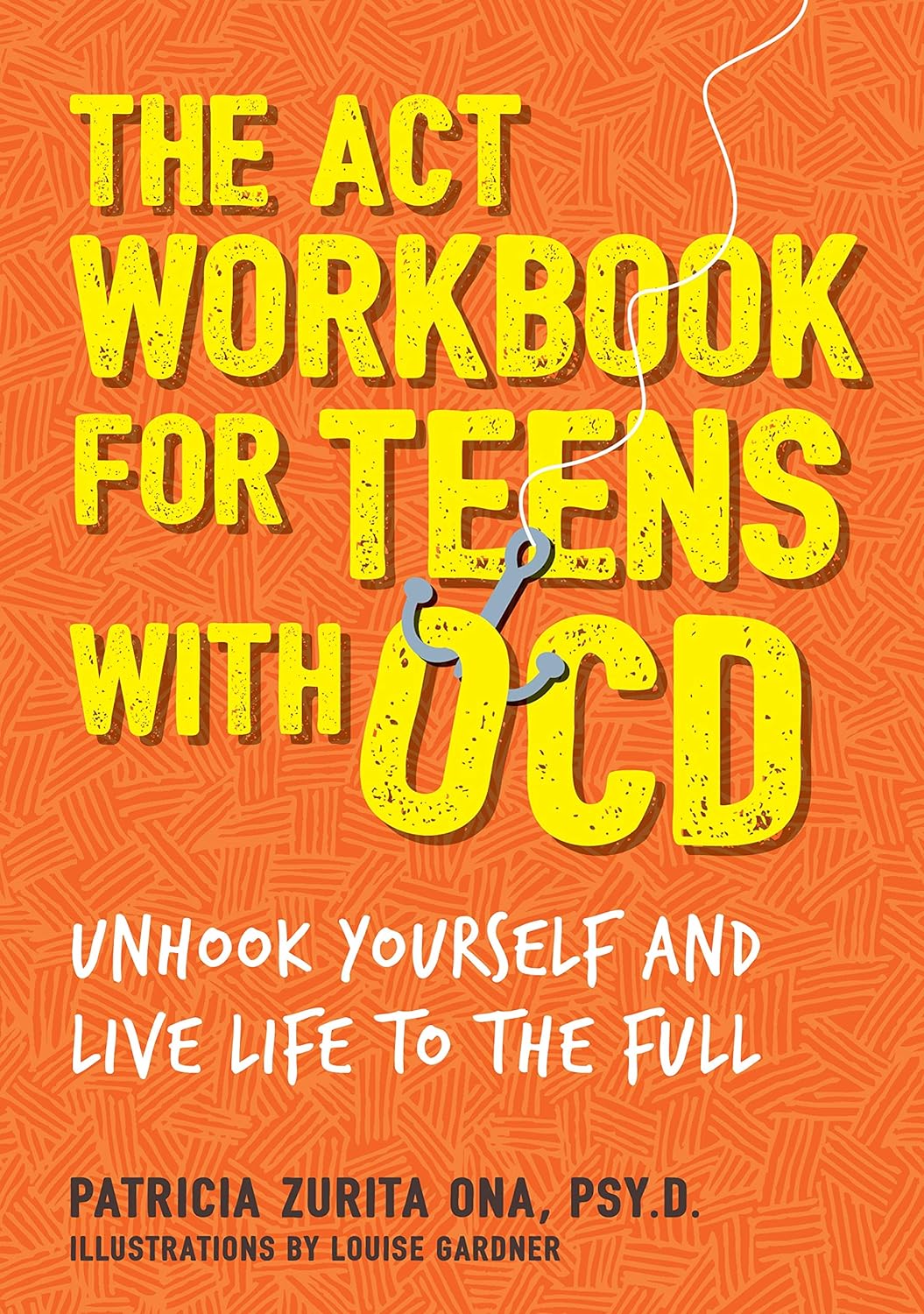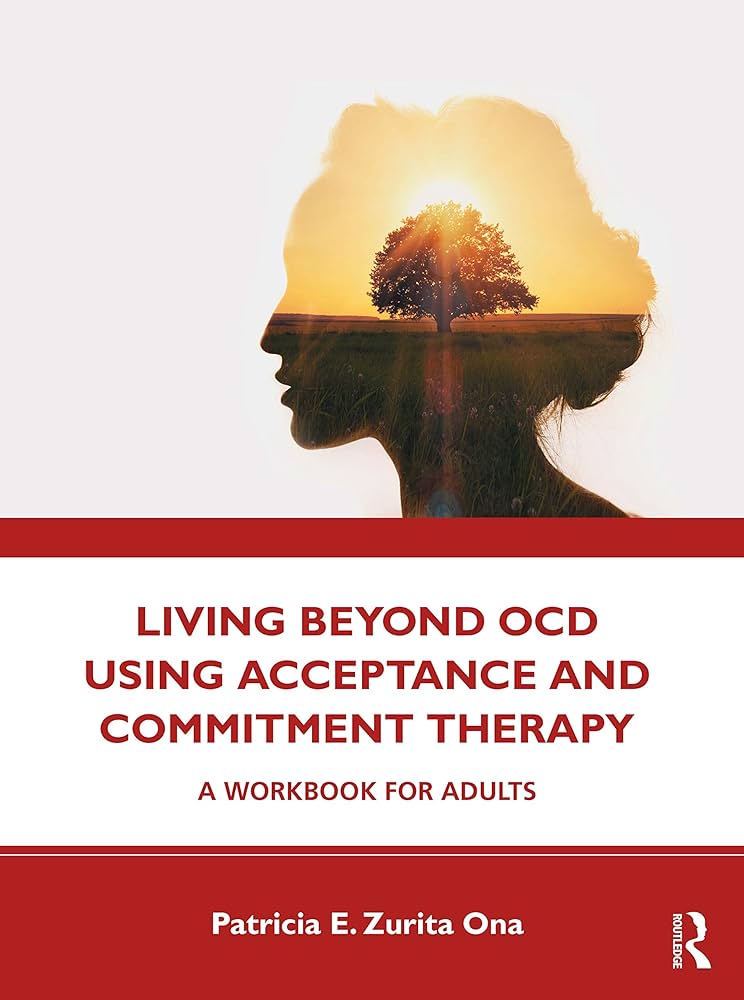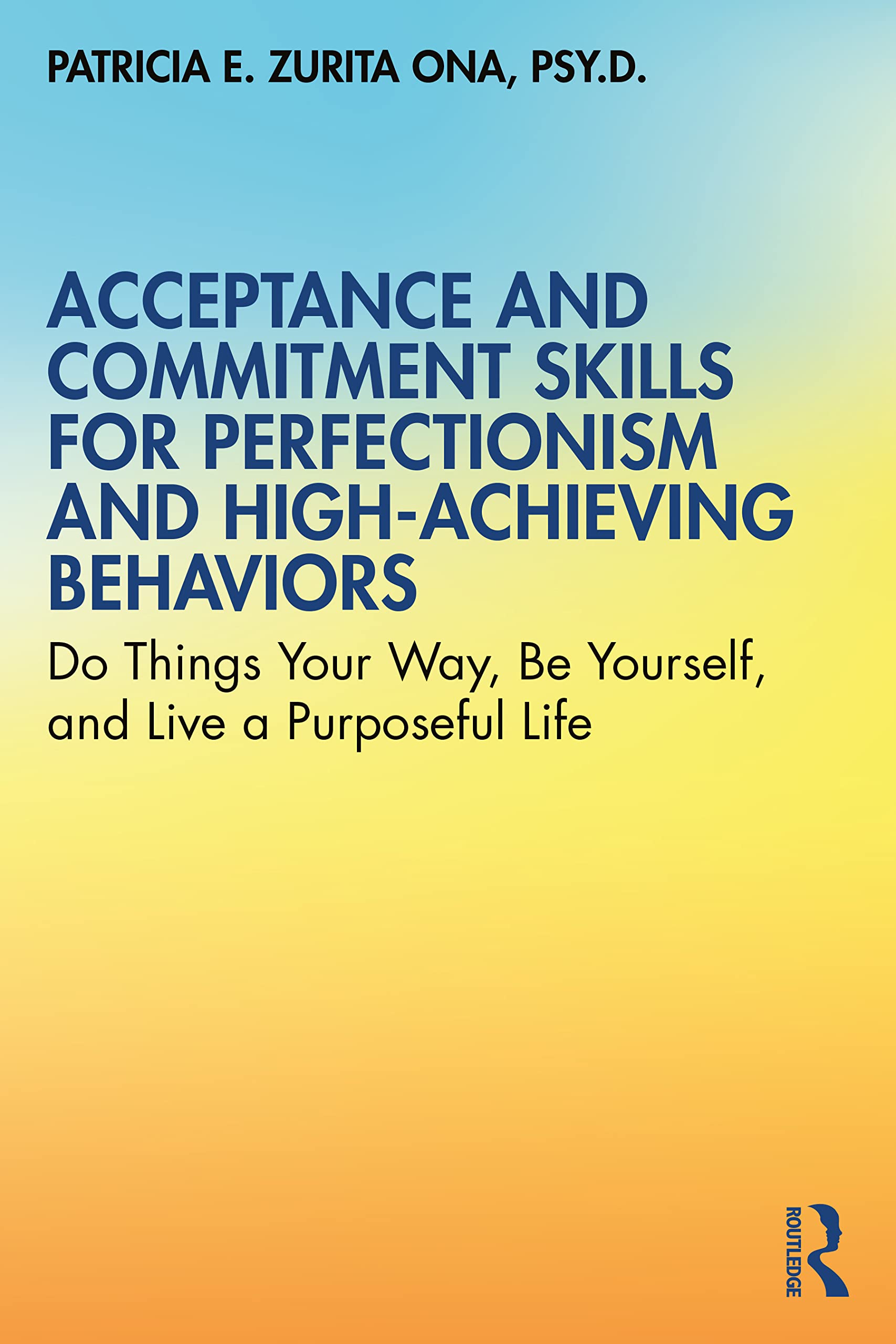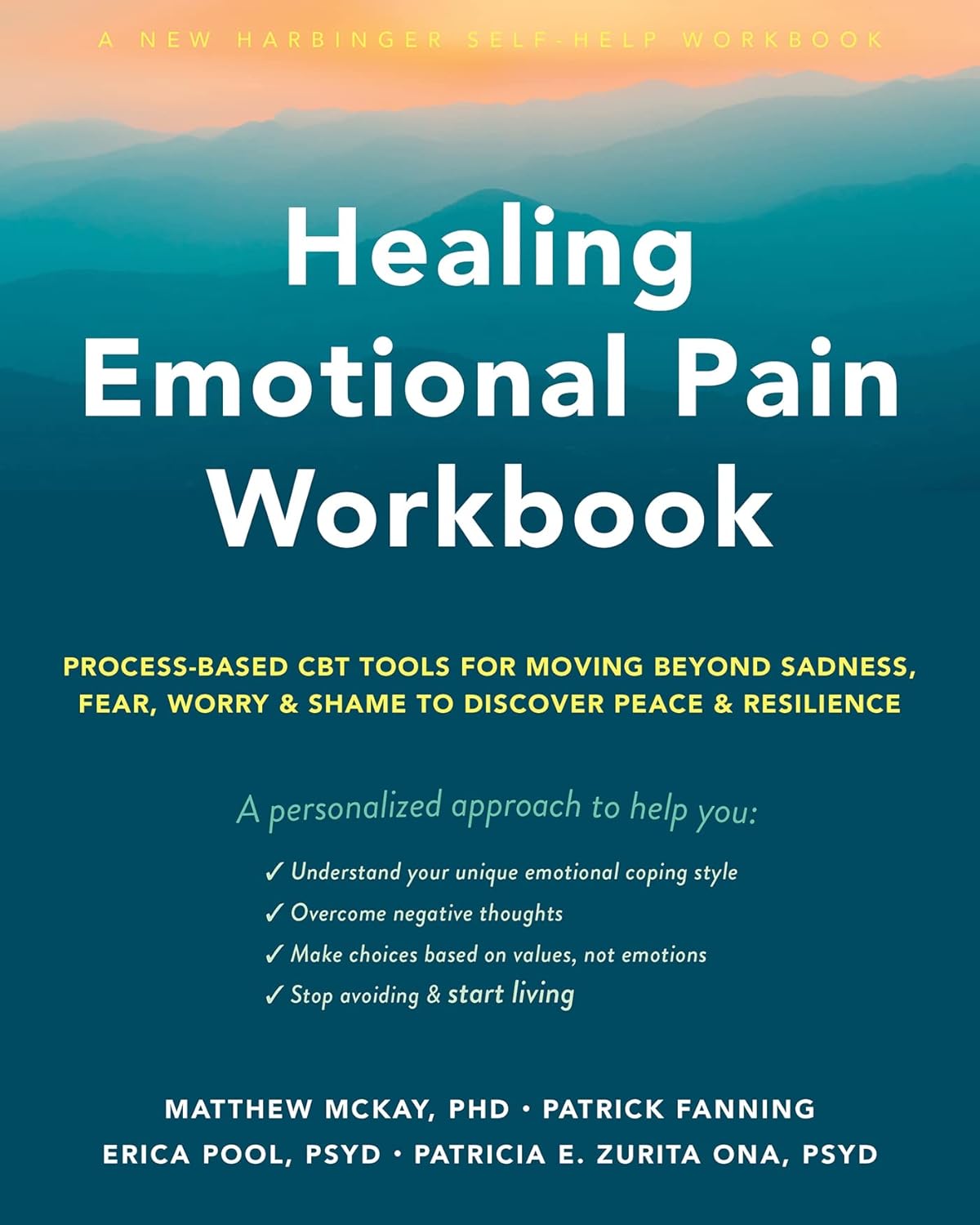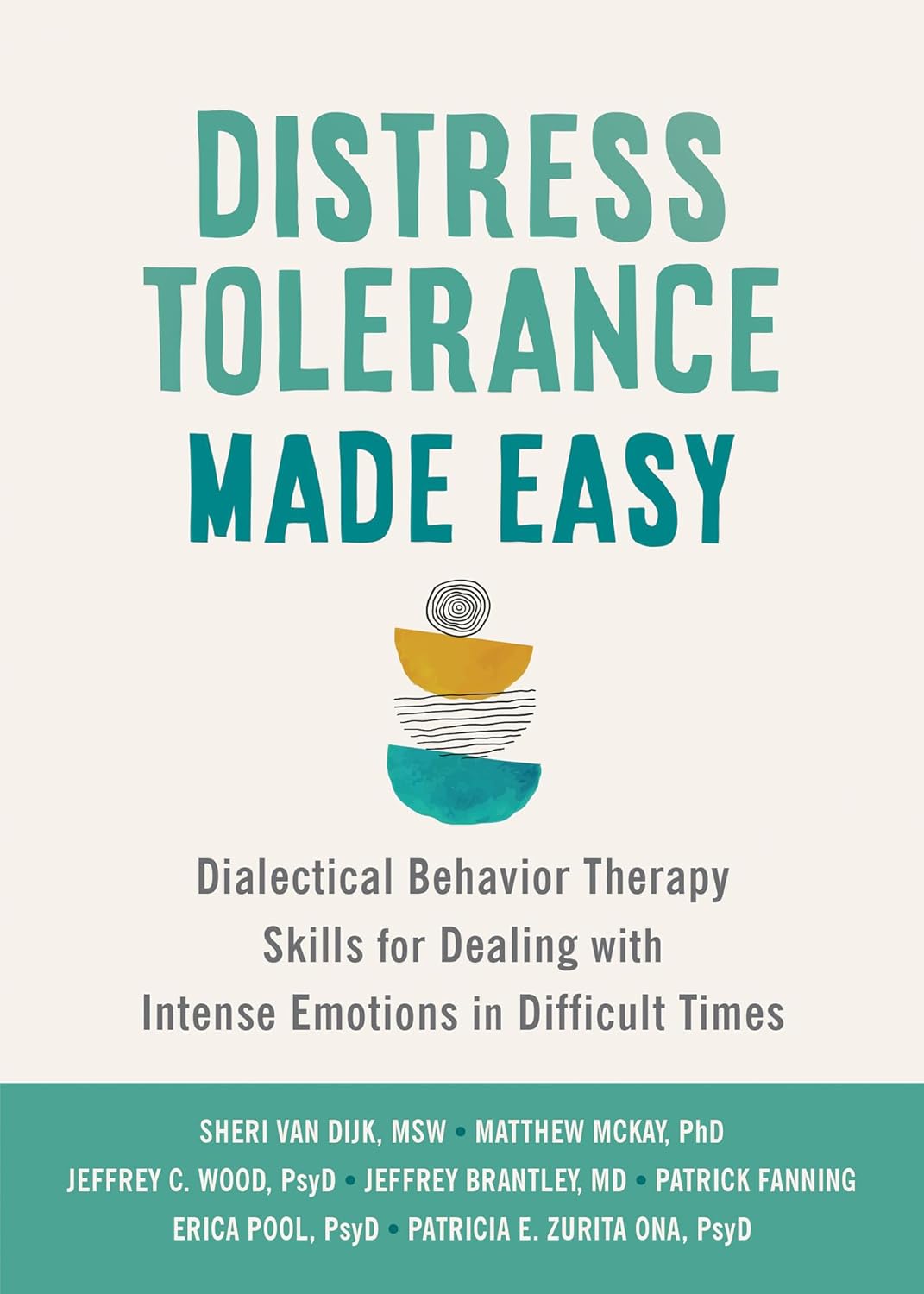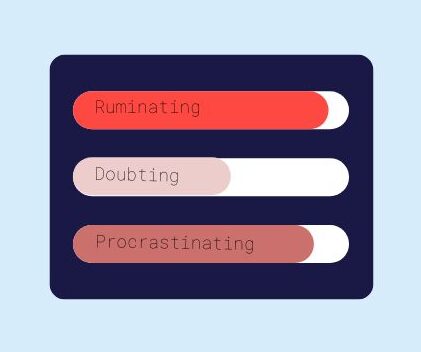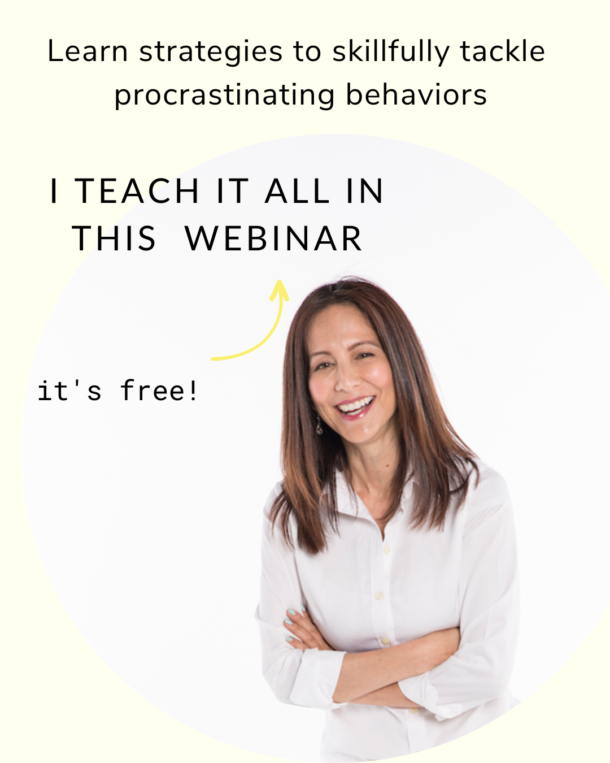INTENSIVE OUTPATIENT PROGRAM
Whats unique about our iop?
Our program
Our IOP is “tailored exclusively to you, only YOU” and “we don’t talk about exposure, we do exposure.”
- You schedule your intensive sessions based on your work or school’s schedule.
(mornings, afternoon, weekend, and evening appointments available) - You have a single therapist in charge of your treatment plan.
- You have access to your therapist for exposure coaching 24/7.
- Your anxiety, worries, fears, obsessions, and related symptoms are targeted strategically in every session.
- You commit to 60-hours minimum, 4 weeks minimum.
- You participate on 180-minutes sessions, five days a week.
- Parent coaching sessions are required when working with children and teens.
Why treatment for ocd is important
The benefits
Children and teens struggling with severe OCD are at risk of dropping important activities such as attending school, spending time with friends, and basic self-care including eating, grooming, etc.
Adult OCD sufferers are almost four times more likely to be unemployed and are at risk for developing other comorbid condition such as depressions, social phobia, panic disorder, phobias, or substance abuse (Rasmussen & Tsuang, 1986; Karno et al., 1988; Koran, Thienemann, & Davenport, 1996).
What does the iop treatment look like?
The treatment
Our program is based on Exposure Response Prevention (ERP), the most effective treatment for treating OCD and anxiety problems for children, teens, and adults, based on clinical research over the last 20 years.
Exposure involves gradually approaching, at your or your child’s pace, situations, thoughts, images, or urges that are triggering in daily life without engaging in any compulsive behaviors (counting, touching, reassurance seeking, washing, tapping, etc). Our clients always “choose” what to face, we coach them how to do it.
Pediatric intensive program
Pediatric IOP
We’re very excited to offer a specialized Pediatric Intensive program for children ages 5-12, struggling with anxiety and OCD.
Our intensive pediatric program is a commitment of 30-hours of therapy, scheduled over a minimum of three weeks, with each session lasting 2-hours each.
Our intensive pediatric sessions are unique by nature because they include parent coaching sessions in-vivo and regular parent-coaching sessions.
In a parent coaching session in-vivo, parents will collaborate with the clinician and their kid together, so they can learn directly from the clinician how to support their kids. Super-cool, right?
Parents and kids will receive all the support they need to tackle anxiety, worries, fears, and obsessions!
Treatment outcomes
Obsessions: fears of stabbing his mother, being of a different sexual orientation, cursing obscenities.
Number of sessions: 20 (180-minutes each)
CY-BOCS and Y-BOCS score ranges: 0-7 sub-clinical; 8-15 mild; 16-23 moderate; 24-31 severe; 32-40 extreme.
This chart shows clients’ OCD severity scores as measured by the Children’s Yale-Brown Obsessive Compulsive Scale (CY-BOCS).

Obsessions: fear of stopping breathing.
Number of sessions: 39 (120-minutes each)
CY-BOCS and Y-BOCS score ranges: 0-7 sub-clinical; 8-15 mild; 16-23 moderate; 24-31 severe; 32-40 extreme.
This chart shows clients’ OCD severity scores as measured by the Children’s Yale-Brown Obsessive Compulsive Scale (CY-BOCS).

Obsessions: fears of making mistakes.
Number of sessions: 32 (120-minutes each)
CY-BOCS and Y-BOCS score ranges: 0-7 sub-clinical; 8-15 mild; 16-23 moderate; 24-31 severe; 32-40 extreme.
This chart shows clients’ OCD severity scores as measured by the Yale-Brown Obsessive Compulsive Scale (Y-BOCS).
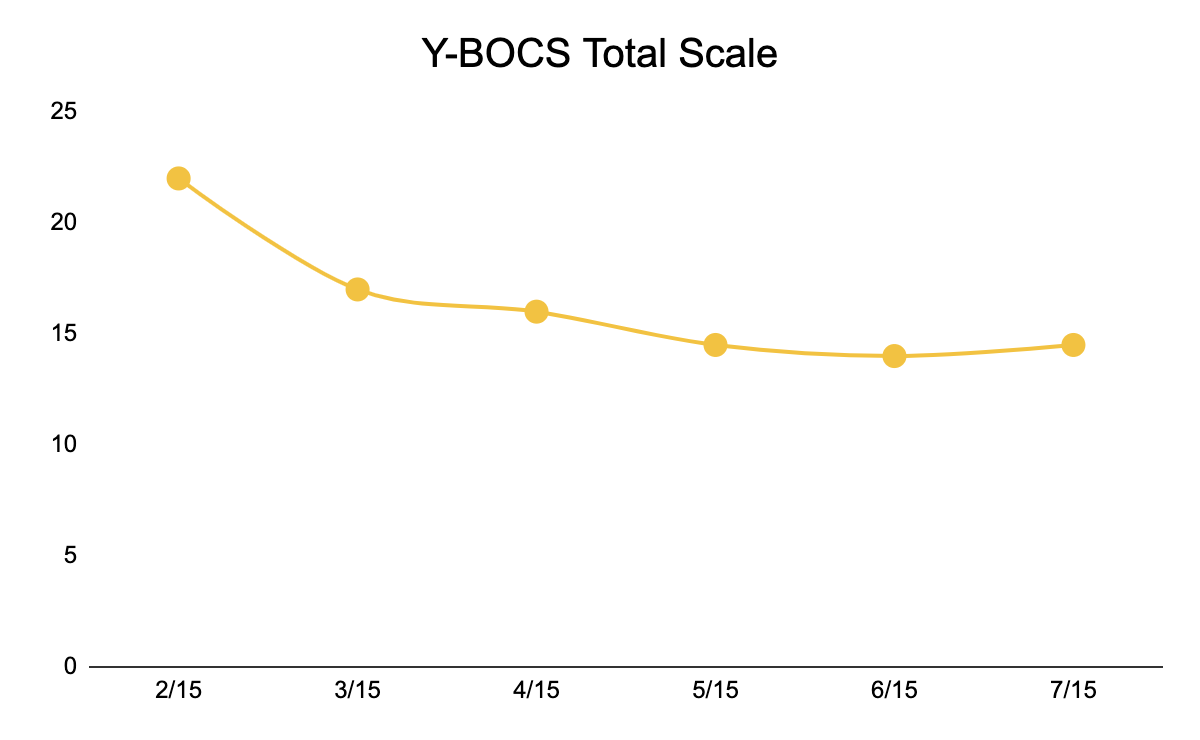
Most common obsessions and compulsions
harm OCD
common obsessions: fear of causing harm or violently attacking others.
common compulsions: avoidance of people that could be harm, objects that could be used, reassurance.
pedophile obsessions
common obsessions: fear of being sexually attracted to children.
common compulsions: checking for arousal in triggering situation, excessive mental review of behavior around children or teen.
religious and moral ocd, scrupulosity OCD
common obsessions: fear of blasphemy or being morally imperfect
common compulsions: excessive mental review of perceived moral faults, compulsive prayer.
just right OCD
common obsessions: fear of not being able to tolerate uncomfortable, unpleasant feelings.
common compulsions: re-arranging/ordering behaviors until it feels “right.”
contamination OCD
common obsessions: fear of all types of contaminants such as germs, chemicals, etc.
common compulsions: excessive washing, checking specific areas.
common obsessions: fear of having or catching illnesses e.g. cancer, HIV, flu, etc.
common compulsions: excessive scanning for body for symptoms, excessive information seeking, reassurance seeking from medical professionals.
gay OCD, or HOCD
common obsessions: intrusive thoughts related to sexual orientation e.g. am I gay?
common compulsions: checking for sexual arousal or body noise in triggering situations, avoidance of triggering situations, excessive mental review of sexual themes.
relationship OCD
common obsessions: fear of not being in loved, not choosing the right partner.
common compulsions: mental checking of love memories, mental checking of qualities of relationship.
hyperawareness OCD, somatosensory OCD
common obsessions: fear of not properly breathing, blinking, swallowing, or other semi-voluntary behaviors
common compulsions: excessive attention to body changes, excessive monitoring of a micro change in the body.
Frequently asked questions about the iop
Where are IOP sessions held?
- Our office located in Walnut Creek, Virtual or In-Home sessions are available (location may vary depending on primary clinician)
How soon can I start IOP?
- We do our best to start our IOP as soon as possible, after an intake evaluation has been conducted. As we are boutique practice, we do require approximately 2 months notice for clients to begin IOP. Depending on current availability, we can accommodate people within a month or less.
Are times for the IOP set to be consistent each day?
- Our IOP is 1:1, individualized so we do our best to accommodate any scheduling requests, however scheduling requests are not guaranteed. *When an IOP is booked with at least 2 months in advance, we can certainly offer more options with scheduling.
If needed, can I miss days or switch times on certain days?
- Given the importance of maximizing every intensive session, secure ongoing learning of exposure skills and the logistics of making changes in our schedule when offering an IOP, sessions can not be rescheduled or missed. *Please note if IOP sessions are canceled, they are not refunded.
Is IOP only 4 weeks? What if additional sessions are needed?
- We have facilitated many intensive treatments in 4 weeks and the longest IOP has been 6 months. It really depends on a person’s ability to manage fears, worries, and obsessions as their treatment progress.We certainly do our best to teach exposure skills to all our client and keep track of progress on a weekly basis. ; We use standard psychological measurements on a weekly basis to measure a client’s progress and determine next steps in terms of treatment such as the Penn Worry Questionnaire, Liebowitz Social Anxiety Scale, Yale-Obsessive Compulsive Scale, Depression Anxiety and Stress Scale (DASS) and others as needed.
Do parents attend IOP Sessions?
- For teens, there is no need for parents to attend IOP sessions; we offer parent coaching sessions outside of the IOP, which can be booked directly on our website.
- For Pediatric intensive treatments, we offer parent coaching sessions, once a week as part of the intensive treatment
After the 4 week IOP, should I continue sessions weekly?
- At the end of an IOP; a discharge plan is completed and it includes frequency of future sessions.
Online courses
Home-study programs
You can learn actionable, compassionate and research-based skills from the comfort of your own home and at your pace.
Each online class includes high-quality videos, worksheets, and audio-recorded exercises.

LEARN MORE

LEARN MORE

LEARN MORE

LEARN MORE

LEARN MORE

LEAN MORE
Why our clients love working with us
testimonials
How to start working with us
get unstuck
Figure out what's really keeping you stuck and struggling by having a comprehensive intake session.
We work with children, teens, and adults and do our best to get you back into your life!



925.956.4636
intakes@eastbaybehaviortherapycenter.com
Address
45 Quail Court, Suite 204
Walnut Creek, Ca 94596
Follow us
